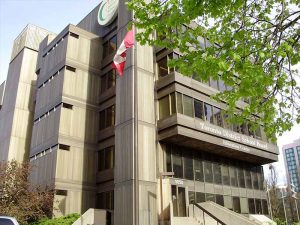At 90 years of age, Harvey Freeman is beginning to slow down, but just a bit.
When he a much spryer man in his 80s, he’d hit the pavement and run 10 to 15 kilometres and feel great afterwards. He’s still running, but after hitting the pavement, he feels the need to lie down.
“I asked my doctor, ‘Why am I slowing down?’ He said, ‘Go home and read your birth certificate,’ ” Freeman recounted.
For Freeman, regular running has provided him with something resembling a fountain of youth. A more cynical observer might suggest it’s just runner’s high.
The jogging does make him feel exhilarated, he acknowledges, and he feels better for having run through his mid-town neighbourhood, but these days, he needs a little rest afterwards.
Still, he gets out to jog two or three times a week and the rest of the time he’s in his building’s gym doing mat work. After all, the Scotiabank Toronto Waterfront Marathon is just around the corner and he plans to compete again this year in a five-kilometre race for those 75 and older. As far as he can tell, he’ll be the only runner competing who’s on the north side of 90.
To train, he runs five or six kilometres, up to three times a week. Sometimes, his old knee injury acts up after 30 minutes or so, “but you run through it,” he said.
Back in his heyday, when he was in his 80s, he won the race in his age category five years in a row.
He also ran races in Ottawa and, in his early 80s, he traveled to Israel a couple of times to compete in the Seniors Olympiad, where he finished third behind guys in their 70s. He also ran in a regional race in the Galilee with four of his children.
READ: FOURTEEN-YEAR-OLD OWEN WEINSTEIN SUCCUMBS TO CANCER
For Freeman, running has become a regular part of his routine and he credits it with not only making him feel good, but with saving his life.
Back when he was 68, he was living the life – the life of someone whose heart might give out on him at any moment.
He smoked, was pretty sedentary and enjoyed a steady diet of hamburgers and deli meats. Tasty, yes, but not exactly the diet of champions.
Once, during a vacation in British Columbia, he suffered a heart attack. Airlifted from a regional hospital in Comox to a larger medical facility in Victoria, he was treated with angioplasty and stents were put in his arteries.
A doctor, who was about 10 years older than him, advised him to change his lifestyle and start exercising.
The heart attack, Freeman said, “put the fear of the devil in me.”
Upon his return to Toronto, he started walking on a track as part of his rehab, in a program developed by the late Dr. Terry Kavanagh, who at one time ran the largest outpatient cardiac rehabilitation program in North America. Freeman also put away the cancer darts, lost 9 kg in nine months and changed his diet.
After eight months of walking, he took up running.
“I was jogging very slowly, but it was jogging,” he said.
“My kids are all runners,” he continued. “One suggested I get into a race at Downsview Park when I was in my 70s and, low and behold, I came in fourth in the 70-plus class.”
At the time, Freeman was running between 10 and 15 kilometres a day. That was enough to prepare him for the 10-km Toronto marathon.
His success in races, coupled with the feeling of well-being, provided added incentive to continue running, even at his later stage of life.
When visiting local hospitals, “I see classes with old guys, depressed, ready to give up. I say, it’s never too late to start.
“Instead of going back to the hospital on a slab, I’m still around. I don’t even know if the doctor in Victoria is.”






